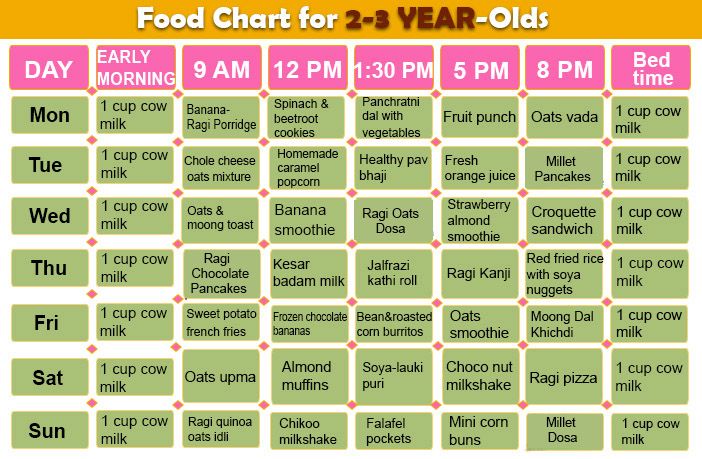Baby food before bed
9 Best Dinner Foods for Your Baby to Help Him Sleep Peacefully All Night! (With Recipes)
Putting your baby to sleep is perhaps one of the toughest tasks you need to accomplish every day. Babies wake up often every night and find it difficult to sleep at a stretch. This also affects your health as you need to stay up with your baby and help him feel better. Very often, your baby finally falls asleep at 6 AM and for you, it is time to get started on the new day! Well, what if you found that making a couple of changes in your baby’s dinner can solve this problem?
If your baby has weaned off breastmilk and been introduced to solid foods, he probably eats a variety of things for dinner. Purees, porridge, rice, fruits…Our purpose is to keep his dinner nutritious, filling and easy to digest. But here’s the interesting part: research suggests that diet has a very crucial role to play in your baby’s SLEEP cycle!
The contents of any food item that we consume have an effect on our overall health. While some foods make us alert and wakeful (think coffee, for adults), there are certain food products that are known to promote sleep. These food items combined with complex carbohydrates help in the release of sleep-promoting substances in the body. This makes your baby feel sleepy and comfortable after his dinner. Simply put, this means he is likelier to nap sooner and for longer!
Did you know that according to some studies in child development, each sleepless hour a night can potentially cut down TWO cognitive years in a baby?
9 Dinner Food Recipes for Babies to Help them Sleep Better Through the Night
Here are 9 dinner foods for babies that are not just nutritious and easy to digest but also help your little one get a good night’s sleep!
1. Warm Oatmeal
Oatmeal is a wholesome food in itself, extremely healthy for both babies and adults. But here’s the best part: it is also an excellent source of melatonin which helps trigger insulin production. Insulin in turn helps in inducing sleep! You can prepare oatmeal in many different forms, the simplest of which is a porridge, light and easy to digest for babies. We recommend mixing it up with apples to improve both the taste and the nutrition quotient.
Insulin in turn helps in inducing sleep! You can prepare oatmeal in many different forms, the simplest of which is a porridge, light and easy to digest for babies. We recommend mixing it up with apples to improve both the taste and the nutrition quotient.
Recipe: Oats Porridge With Apples
2. White Rice
Rice is well-known be high in glycemic index. This, according to several scientific studies, has been found to help people sleep better and faster. Now you know why many people tend to feel sleepy after consuming rice! Although brown rice is highly recommended for babies due to its higher nutrient value, white rice has a higher glycemic index when compared to brown. Plus, rice is easily digested by babies and is light on the stomach too. Try this rice pudding with apples again – quite a delicious dinner food to help your baby nap!
Recipe: Apple Rice Pudding
3. Spinach
As mothers, we keep stressing on feeding green leafy vegetables to our little ones. We want them to reap the benefits of nutrients such as iron, vitamins and minerals. But did you know that apart from providing the required nutrients, green veggies are also rich in tryptophan – an amino acid that our bodies use to synthesize proteins? Tryptophan also helps in the production of melatonin – the body’s ‘sleep hormone’! It is also called the body clock hormone as it determines the baby’s sleep-wake cycles. Whew, spinach has so many other health benefits that its sleep-inducing property is just another feather in its cap!
We want them to reap the benefits of nutrients such as iron, vitamins and minerals. But did you know that apart from providing the required nutrients, green veggies are also rich in tryptophan – an amino acid that our bodies use to synthesize proteins? Tryptophan also helps in the production of melatonin – the body’s ‘sleep hormone’! It is also called the body clock hormone as it determines the baby’s sleep-wake cycles. Whew, spinach has so many other health benefits that its sleep-inducing property is just another feather in its cap!
4. Cherries
Cherries are another great addition to your baby’s dinner, for the same reason as spinach – they are replete with melatonin, the sleep hormone! They are also quite delicious which means your baby is likelier to accept them easily. Keep in mind that tart cherries contain the most amount of melatonin so choose them over the sweet ones.
How to Feed: It is best to de-seed and puree the cherries before feeding your baby.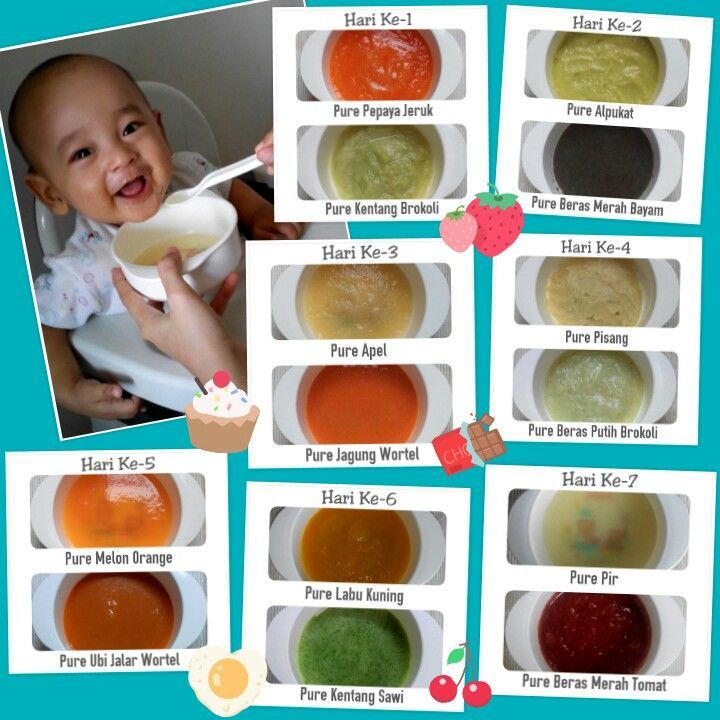 This makes them easier to consume and digest.
This makes them easier to consume and digest.
Watch: An Easy Cherry Puree Recipe for Your Baby
Key Takeaway:
- All you need are cherries, either frozen or fresh. Defrost the frozen cherries for 4-5 hours before preparing the puree.
- Puree the cherries in the food processor or blender.
- Place the mix on a low-medium flame for 5 minutes. Remove when it starts steaming.
- Strain the mixture to get out the chunky bits with a mesh sieve.
5. Bananas
Bananas are loved by many babies for their soft, sweet taste. But did you know that they contain a good amount of magnesium which is a natural muscle relaxant? Relaxed muscles mean your baby feels sleepier after dinner and eventually sleeps better! Apart from this, bananas also have good amounts of melatonin and serotonin. We recommend the following banana puree recipe for your little one.
We recommend the following banana puree recipe for your little one.
Recipe: Banana Puree
6. Chicken
If you are a non-vegetarian, you may be considering introducing chicken in your baby’s diet. You have a great reason too! Chicken contains high levels of tryptophan. And as we discussed, this amino acid will definitely make your baby sleepy post dinner! Needless to say, chicken will also take care of the protein requirements of your baby. It is a great idea to begin with shredded pieces and soup post the age of 8 months. Here is a recipe you can try to reap the double protein benefits of chicken and lentils. If your baby is old enough to self-feed, serve it in a bowl that has his favourite cartoon characters for maximum attention! 😉
7. Walnuts
Walnuts help the body in the production of serotonin – a chemical that soothes the brain and affects the mood of a person, making them more relaxed. This helps them sleep better and longer. Walnuts also contain melatonin which, as we saw, is great for napping. We recommend adding walnuts to your baby’s dinner after making sure there are no small pieces that can induce choking. Nuts are recommended for babies after they have crossed the one year milestone so as to minimise risks of allergies. Consult your paediatrician to discuss this further.
Walnuts also contain melatonin which, as we saw, is great for napping. We recommend adding walnuts to your baby’s dinner after making sure there are no small pieces that can induce choking. Nuts are recommended for babies after they have crossed the one year milestone so as to minimise risks of allergies. Consult your paediatrician to discuss this further.
8. Chickpeas
Legumes, in general, are high in protein as well as tryptophan and hence a great sleep promoter. But apart from high protein content, chickpeas are also high in iron, potassium, fibre and vitamins K, C and B-6. This makes them a great, nutritious dinner food! It is advised to boil the beans and mash them to include in your baby’s diet. This makes it easy for them to consume as well as digest chickpeas.
9. Dairy Products
Finally, this one is no surprise – the milk before bed-time is certainly a great idea. But even apart from milk, other dairy products like cheese and paneer are also packed with tryptophan. Hence, something like a bowl of bananas mashed in milk an hour prior to bedtime will ensure your baby sleeps comfortably through the night. Also, if going for cheese, opt for swiss and cheddar as they have the maximum amount of tryptophan. You can also make the following recipe part of your baby’s dinner sometimes, for a special treat! It is tailored especially to a baby’s taste and digestive power.
Hence, something like a bowl of bananas mashed in milk an hour prior to bedtime will ensure your baby sleeps comfortably through the night. Also, if going for cheese, opt for swiss and cheddar as they have the maximum amount of tryptophan. You can also make the following recipe part of your baby’s dinner sometimes, for a special treat! It is tailored especially to a baby’s taste and digestive power.
Did You Know:
Certain foods like sugar and caffeine are stimulating in nature and hence the term ‘sugar rush’ is actually a real thing. It is therefore advisable not to include food items containing these properties right before bedtime. As a rule, go easy on the sugar you add to any baby food to also protect your child from the risk of tooth decay and developing unhealthy eating habits.
Tips While Feeding Your Baby to Ensure Sleep Throughout the Night
When babies first begin eating solid foods, they may experience discomfort that also affects their sleep.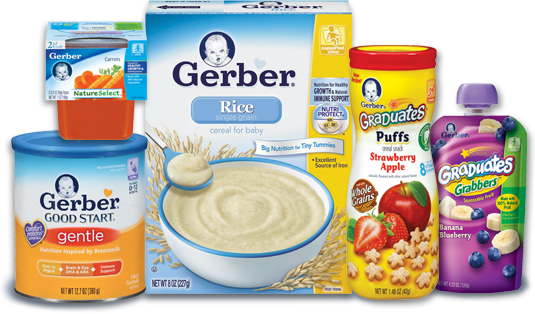 There can be several reasons for this. For one, their digestive system is still coping with the sudden change from liquids to solids. The timings between the feeding of solids and milk probably haven’t been properly worked out yet. Sometimes, the quality of the food matters more than the quantity consumed. Apart from this, there may be certain things in the breastfeeding routine of the baby that is holding up their sleep schedules. You can follow these following tips to induce a long night’s sleep in your baby!
There can be several reasons for this. For one, their digestive system is still coping with the sudden change from liquids to solids. The timings between the feeding of solids and milk probably haven’t been properly worked out yet. Sometimes, the quality of the food matters more than the quantity consumed. Apart from this, there may be certain things in the breastfeeding routine of the baby that is holding up their sleep schedules. You can follow these following tips to induce a long night’s sleep in your baby!
- While breastfeeding, keep the light turned off so as to make it clear that it’s not daytime. Alternatively, you can use a nightlight or dimmer switch. Use white noises (such as the hum of the fan) in the background which can help soothe the baby.
- Ensure that you burp your baby after breastfeeding; otherwise, trapped air in his stomach can cause him to wake up.
- Fixing a schedule for the baby’s eating and sleeping patterns is beneficial for the baby’s overall development.
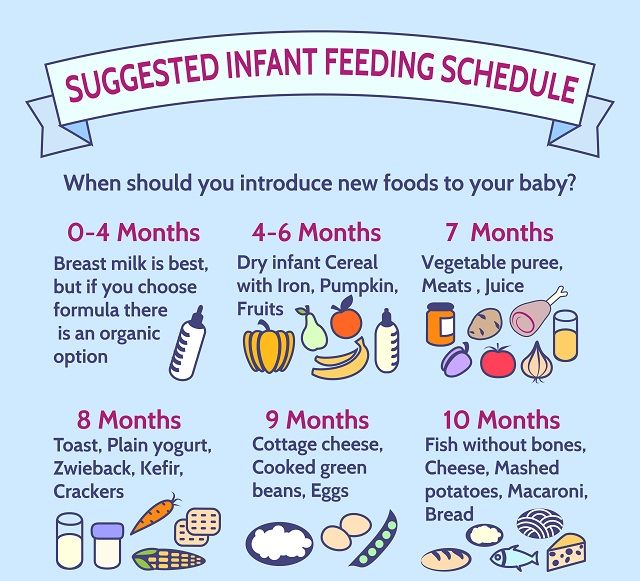 From the months of 4 to almost 18, it is ideal that bedtime should be between 7 to 8 pm, depending on where your baby is along the age line. Accordingly, dinner should be timed an hour or 1.5 hours before the baby’s bedtime.
From the months of 4 to almost 18, it is ideal that bedtime should be between 7 to 8 pm, depending on where your baby is along the age line. Accordingly, dinner should be timed an hour or 1.5 hours before the baby’s bedtime.
- It’s not just dinnertime that should be fixed. The baby’s daytime routine also plays an important role in getting him to sleep through the night. Schedule timings for his meals and naps as is age-appropriate. Eventually, this can help the baby naturally feel drowsy by his bedtime.
- One of the main reasons for babies to wake in the middle of the night can be indigestion, because of which the child faces discomfort. ‘Tummy Time’ is gaining popularity among new parents now, owing to its several benefits, one of which is improving digestion. Lying on their tummy during the day (for example supervised floor play) provides the baby’s abdominal organs with a kind of ‘massage’, which also helps to relieve gas, and stimulate normal bowel movements.
 Keep in mind that this should not be done immediately after a meal. Also, while babies should compulsorily be made to sleep on their back only, tummy time during their waking hours can be of help.
Keep in mind that this should not be done immediately after a meal. Also, while babies should compulsorily be made to sleep on their back only, tummy time during their waking hours can be of help.
- It will take up to the age of 8-9 months for the baby to sleep through the entire night (meaning a consolidated 11-12 hours of sleep). To remove the association of feeding and sleeping in their brains, it is important to wean your baby off being fed to sleep. Start with moving his nursing at the beginning of his bedtime routine (rather than at the end). If he persists in waking, make it earlier. i.e right before/after dinnertime.
- Remember to put your baby down to sleep when he is drowsy, but still awake. Rushing to get your baby to sleep right after nursing can prove to be problematic, as when the baby wakes up, he doesn’t know how to fall asleep on his own. Instead, when he is feeling calm and relaxed and is frequently closing his eyes, put him down to bed, and let him learn to put himself to sleep.
 Keep in mind that it may take a week or so for the baby to develop this habit.
Keep in mind that it may take a week or so for the baby to develop this habit.
Along with the baby’s food habits, something that can help your baby’s sleep routine is having your partner take charge as well. Dr. Diana Julian, Child Sleep Consultant, talks about how fathers can be the secret to a baby’s blissful sleep and various techniques they can incorporate. The father can feed the baby a bottle of breast milk during the night feedings, which makes for a dad-baby bonding session as well. Some mothers also claim that since their husbands took charge of rocking their baby to sleep when he wakes, it has proved to be a success! It could be because the baby associates feeding to the mother and expects to be fed when he wakes in the middle of the night and sees her. Try a role-reversal and see how that works out for you!
Is Your Diet Affecting Your Breastfed Baby’s Sleep?
When your breastfed baby refuses to sleep throughout the night, there are doubts that can creep into your mind regarding the effects of your breastmilk on your baby’s sleep.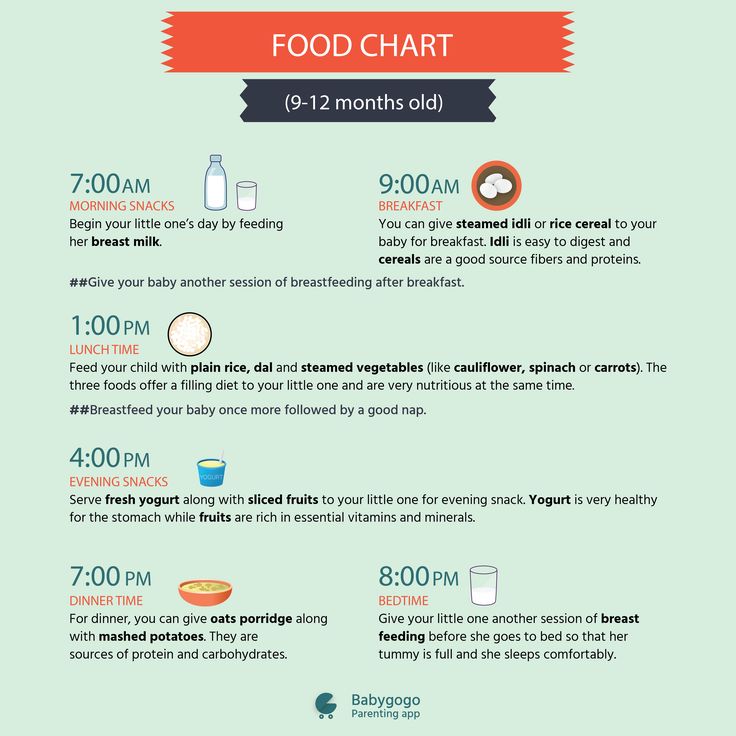 While there is no concrete research which state that elements of your diet can affect your breastmilk, there are certain tried-and-tested techniques by mothers which seem to alter their babies’ sleeping patterns.
While there is no concrete research which state that elements of your diet can affect your breastmilk, there are certain tried-and-tested techniques by mothers which seem to alter their babies’ sleeping patterns.
The first thing to note is that breast milk is not made up of what you eat, but what is in your blood. So there is no particular list of foods that is applicable for mothers’ to avoid. However, if you seem to incorporate caffeine and sugar a little more than the healthy amount in your daily diet, cutting it down is ideal – it definitely will help to improve your overall health!
There are some mothers who have seen a slight improvement in their babies’ sleep patterns once their caffeine/sugar intake was reduced as well. Another possibility to consider is allergic reactions to some food nutrients that may be passed on through your breast milk to your baby. If symptoms like diarrhea, rashes, fussiness, gas, colic and so on keep your baby up at night, keep a track of what you eat and when these symptoms show up. If you see a link, reduce the suspected food and speak to your health-care provider about further remedies.
If you see a link, reduce the suspected food and speak to your health-care provider about further remedies.
So moms, make sure you include these food items in your baby’s dinner to help him sleep uninterrupted. If your baby sleeps well, he will be happy and active the next morning, and so will you! Do you know of more recipes and sleep-promoting dinner foods for babies? Share them with other mommies by leaving a comment below.
Foods to Encourage Your Baby to Sleep Better
Foods to Encourage Your Baby to Sleep Better | Tommee Tippeeclosemaestromastercardpaypalvisaamerican expressapple paygoogle paypadlockphoneaccountsearchicon-arrowicon-chevronwishlist-filledwishlistwishlist-outlinesharereviewsreviews-filledfacebookyoutubeinstagramlinkedinpintresttwittervimeobasket JavaScript seems to be disabled in your browser. For the best experience on our site, be sure to turn on Javascript in your browser.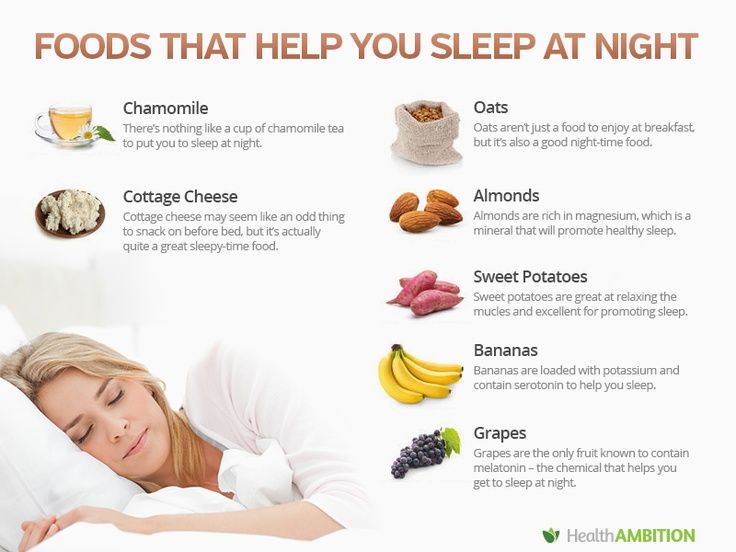
Subscribe to Save
Subscription orders can be cancelled at anytime. Free delivery on all subsequent subscription orders. Find out more about subscriptions.
Why parents love our subscriptions...
-
They’re easy and fuss free
-
Your products are automatically sent to you
-
You save up to 10% when you sign up for a subscription
-
You can cancel at any time
Could choosing the right food be the key to more precious sleep time for little ones and you?
If your baby won’t sleep after eating, or you’re hoping to feed baby to sleep through the night, here are our top tips for the best baby food to give baby before bed to encourage them to sleep better.
Bedtime foods when weaning
If your baby is starting to wean off milk and you’re introducing solid foods (from around six months onwards), you’re probably already trying a variety of different foods, from purees to porridge and rice, finger foods and fruit.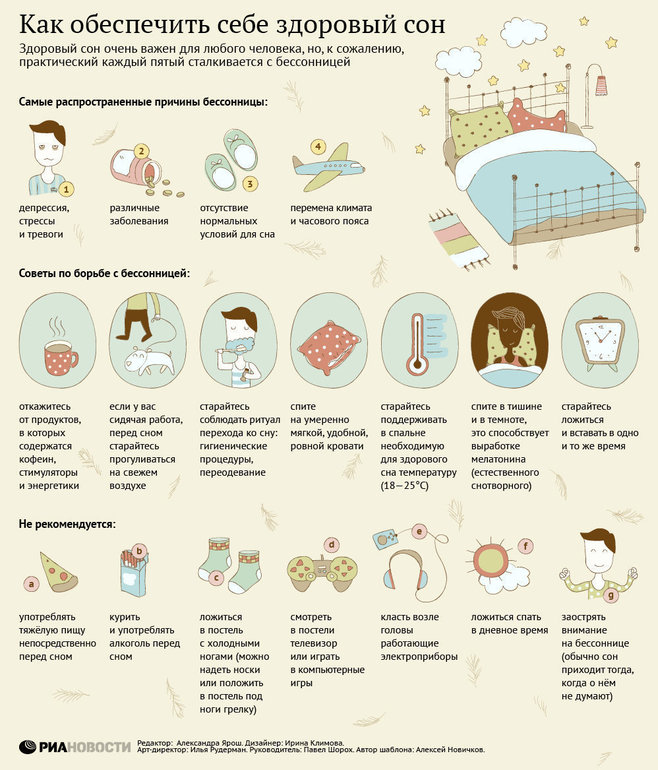 The most important thing is to keep food healthy, nutritious and easy for baby to digest.
The most important thing is to keep food healthy, nutritious and easy for baby to digest.
Foods that can help your baby sleep through the night
So, what foods will aid sleep for your little one and which are the best baby foods to feed before bed? Try these easy-to-digest foods to help your little one sleep through the night:
- Porridge: This wholesome favourite is a healthy choice for babies and adults and it’s light and easy to digest, provided you can get your little one to eat it rather than wear it.
- Rice: Brown rice is very nutritious for babies and white rice is easy to digest and light on the stomach. Rice pudding is a popular dessert that could help your little one sleep.
- Whole grain cereal with milk: Combining diary and cereal will help encourage your baby to naturally produce sleepy hormones.
- Turkey and chicken: Provided you’re not feeding baby a vegetarian diet, adding these meats shredded or in soups can be a good way of adding protein to baby’s diet.
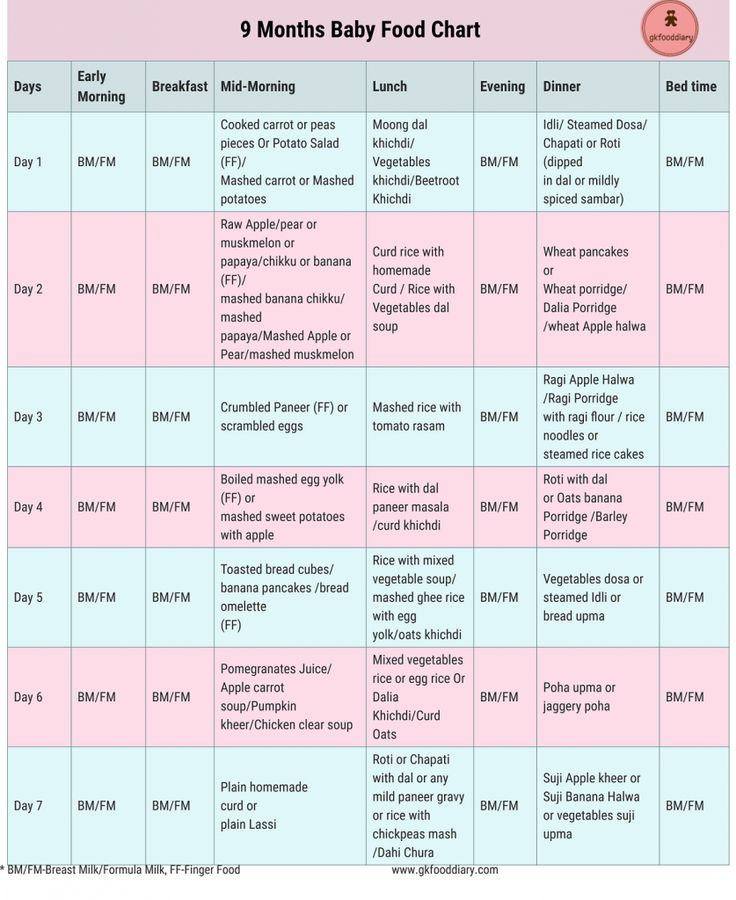 If your little one is confident enough to feed themselves, then let them help themselves to small strips.
If your little one is confident enough to feed themselves, then let them help themselves to small strips.
Helping baby to sleep well
There are many reasons why your baby may struggle to sleep or wake frequently throughout the night, so it’s always important to check that they are safe and comfortable. Visit our sleep section for more help and support with baby sleep.
More Stories
-
What is Co-Sleeping?
The choice to co-sleep is a very personal one, and parents should make an informed decision based on their own situations.
Read Story
-
Safe Sleep Guidelines
At Tommee Tippee, safety is at the heart of everything we do.
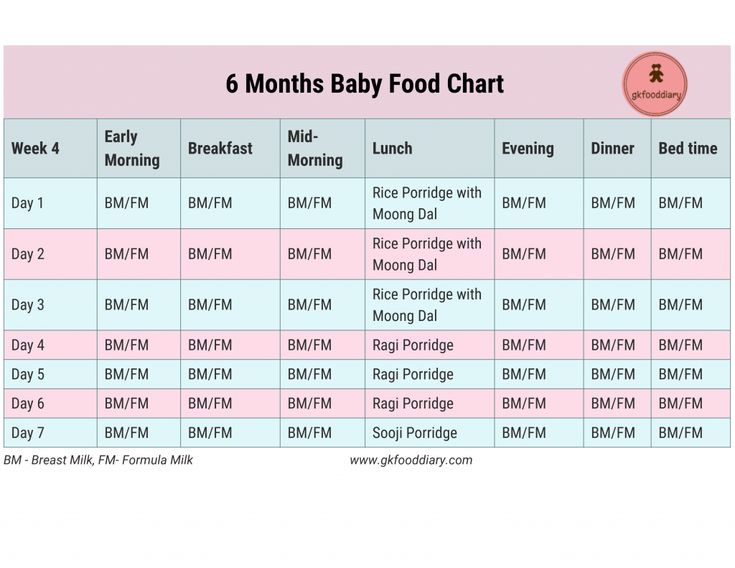 We always advise parents to consider these safe sleep guidelines...
We always advise parents to consider these safe sleep guidelines...Read Story
Proper nutrition before bedtime | HiPP Organic
An evening meal should be easy to digest...
What parents don't dream of a peacefully sleeping child. After all, calm and deep sleep is important for the growth of the child and for his healthy development, and it is no less important for moms and dads.
In order for the baby to fall asleep easily and sleep peacefully all night, along with soothing evening rituals and the right environment during sleep, a hearty and well-digested evening meal, which does not create a feeling of heaviness in a small tummy, plays an important role. It goes without saying that evening porridge should be without added sugar.
What kind of food is easy to digest, satiates well and for a long time, providing a calm and deep sleep for a child?
Milk-cereal porridge has proven itself well for evening feeding.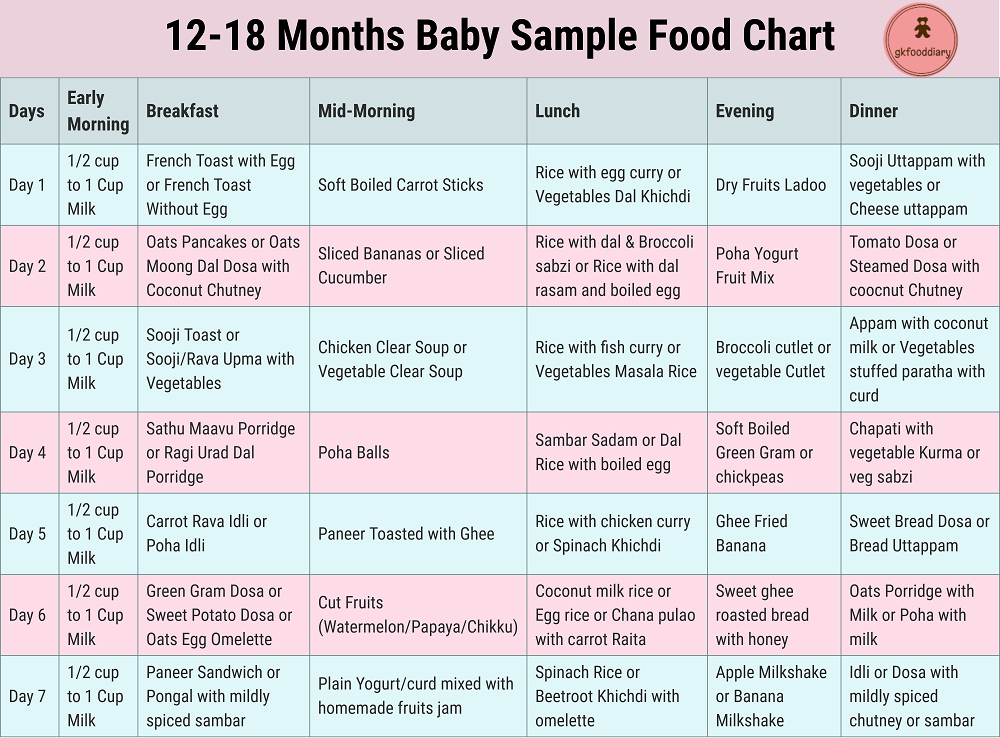 The milk contained in the porridge provides a particularly valuable, easily digestible protein. Delicate cereal flakes fill the body with energy. Whole grain flakes make sure that this energy is stored in the body for a long time. Thanks to this, the baby, as a rule, snores peacefully, and the feeling of hunger does not bother him.
The milk contained in the porridge provides a particularly valuable, easily digestible protein. Delicate cereal flakes fill the body with energy. Whole grain flakes make sure that this energy is stored in the body for a long time. Thanks to this, the baby, as a rule, snores peacefully, and the feeling of hunger does not bother him.
Which Good Night porridges does HiPP offer?
Taking into account the wishes of mothers, HiPP has developed a line of milk desserts in jars "Good night". The milk included in the composition supplies your child with valuable protein in the right amount, and delicate whole grain flakes ensure long-term satiety.
It goes without saying that all HiPP Good Night porridges carry the HiPP BIO organic quality label.
Good night meals
Advice: You can add a few tablespoons of HiPP fruit puree to your HiPP Good Night porridge.
Learn more: Advice
Video: Weaning Advice from the Midwife Video: Baby Massage Diet DietFood and DrinkBaby DigestionOn Vacation with Your BabyAllergiesSleep
Video: Baby Sleep - Important OB Tips Eating right before bedSafe sleeping position for your babyHow much sleep my baby needs baby? Do I need to feed my baby at night? When will my baby start sleeping at night without waking up? Tips for improving your baby's sleep
Baby crying Motor and speech
Choice of complementary foods
No age restrictions from the first daysfrom 1st monthfrom 4 monthsfrom 5 monthsfrom 6 monthsfrom 7 monthsfrom 8 monthsfrom 9 monthsfrom 10 monthsfrom 12 months
puree from 4 months - Vegetable puree from 5 months - Vegetable puree from 6 months - Vegetable puree from 7 months - Vegetable puree from 8 months Fruit puree - from 4 months - from 5 months months - from 6 monthsMeat purees - Meat pureesMeat and vegetable menu - from 8 months - from 12 monthsFish and vegetable menu - from 9Soups - from 6 months - from 7 months - from 8 months - from 12 months - From 18 months "Good night" in jars - Cereal porridge with fruit in jarsDrinks - Health drinks - Granulated teas - Tea bags - JuicesCookies - Cookies
Does my child need food at night?
Every child has their own individual pattern of sleep, nutrition and needs.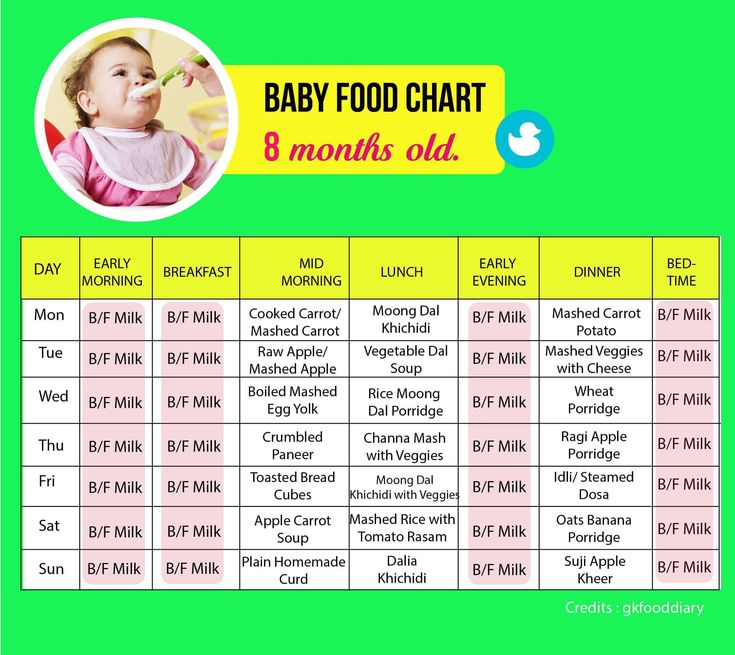 Newborn babies, in particular, have no concept of daytime or nighttime during the first few weeks. The child is simply not used to not being fed for a longer period of time. In the womb, the baby was "fed" around the clock. So at night, be prepared for many "durable calls" in the first few weeks.
Newborn babies, in particular, have no concept of daytime or nighttime during the first few weeks. The child is simply not used to not being fed for a longer period of time. In the womb, the baby was "fed" around the clock. So at night, be prepared for many "durable calls" in the first few weeks.
If you are formula feeding, you can take turns feeding your baby with your partner. Of course, you can get the same benefit if you strain your breast milk in the evening and store it in the refrigerator (well sealed at +4°C to +6°C for a maximum of 2 days).
At three months old, your baby will be able to go without food for longer periods of time between meals and therefore sleep longer at night than during the day. From the second 6th month, children no longer need to eat at night, because at this age, the hunger and fullness of the rhythm of a healthy child will completely pass into the daytime.
Bedtime Milk Dad
As the last meal before bed, milk porridge will keep a baby feeling full longer than breast milk or formula milk.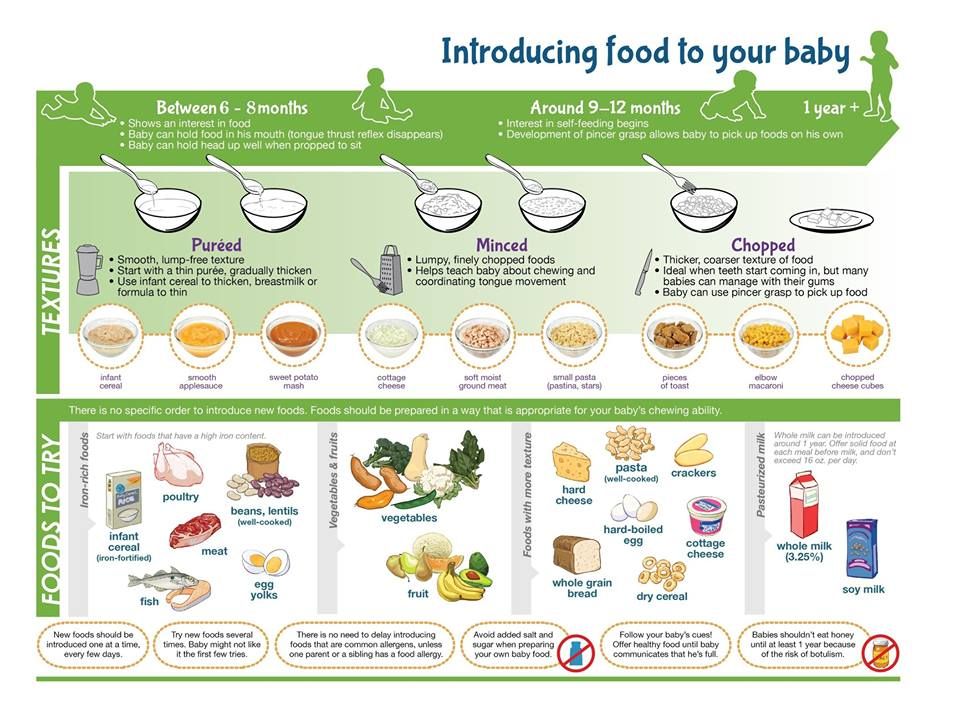 HiPP milk porridges are available in instant forms. All you need is to mix it with water.
HiPP milk porridges are available in instant forms. All you need is to mix it with water.
Feeling full during the day is important
Not only a nutritious dinner is important for feeling full at night, but also sufficient food during the day. If you want your child to sleep through the night, it is also important to meet his nutritional needs during the day. Try to shift the energy content of the night meal to the daytime. Offer a meal for lunch that contains vegetables and meat or fish. Simply replacing formula with just a jar of vegetables won't be enough. At the start of the weaning period and until your baby is able to finish the entire serving, you can still feed your baby with milk until your baby is completely full. Experience shows that the amount of milk will gradually decrease until the milk mixture is completely replaced by porridge.
Weaning the child from nighttime meals
Nighttime meals can become a habit that the child is reluctant to give up.